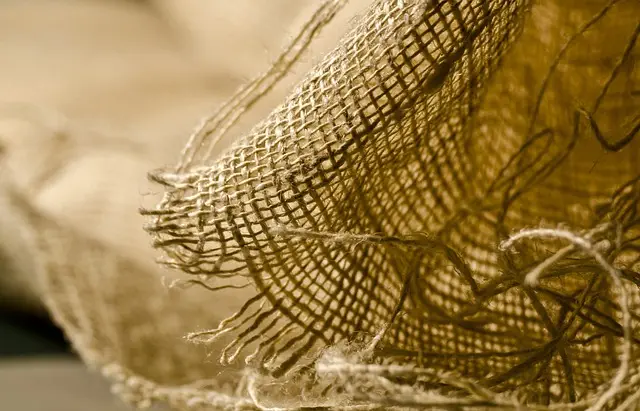Maeng Da Kratom, a potent Thai strain with high levels of alkaloids like mitragynine and 7-hydroxymitragynine, is recognized for its unique benefits in natural wellness and athletic recovery. It's celebrated for its ability to manage pain, enhance mood, and promote energy, as well as its anti-inflammatory properties that may aid in muscle regeneration post-exercise. Maeng Da's effects are dose-dependent, offering both stimulating and sedative qualities. The translation of "Maeng Da" from Thai to English means "Pimp Leaf" or "Mother of All Strains," reflecting its robust nature and significant alkaloid content. While it holds promise for those seeking natural supplementation, individual responses can vary, making professional medical advice essential before incorporating Maeng Da into any health regimen. Its legal status is also subject to regulation, highlighting the need for ethical sourcing and responsible use within fitness communities. Users should approach its inclusion in their recovery strategy with caution, ensuring they follow recommended doses and remain informed about local laws to ensure safe and effective outcomes.
Exploring the multifaceted relationship between athletic training and recovery, this article delves into the potential benefits of incorporating Maeng Da Kratom, a potent strain of the Mitragyna hirsuta plant. By understanding its scientific basis and exploring its Maeng Da translation to English, we uncover its historical roots known as ‘Pimp Leaves.’ This piece elucidates how Maeng Da Kratom can be integrated into effective recovery strategies, offering insights into its role in mitigating exercise-induced fatigue and providing relief from muscle soreness. With a focus on the alkaloids present in Maeng Da that contribute to these effects, the article also addresses crucial safety considerations and ethical use in athletic training recovery. Join us as we navigate the intersection of traditional botany and modern fitness regimens for enhanced performance and well-being.
- Understanding Mitragyna Hirsuta: The Science Behind Maeng Da Kratom
- Maeng Da Translation to English: Exploring the Etymology and Origin of 'Pimp Leaves'
- Effective Training Recovery Strategies Enhanced by Maeng Da Kratom
- Mitigating Exercise-Induced Fatigue with Maeng Da Kratom
- The Role of Alkaloids in Maeng Da for Optimal Muscle Soreness Relief
- Safety Considerations and Ethical Use of Maeng Da Kratom in Athletic Training Recovery
Understanding Mitragyna Hirsuta: The Science Behind Maeng Da Kratom

Mitragyna Hirsuta, commonly known as Maeng Da Kratom, has garnered significant attention within the realm of natural remedies and performance enhancement. This plant, indigenous to Southeast Asia, particularly in countries like Thailand and Indonesia, possesses a unique alkaloid profile that contributes to its distinct effects. The term “Maeng Da,” which translates directly to “Pimp Leaf” in English, speaks to the mature leaves from which it is derived. These leaves are believed to contain higher concentrations of the active alkaloids mitragynine and 7-hydroxymitragynine, which are responsible for its wide range of physiological impacts.
The science behind Maeng Da Kratom lies in its interaction with the human body’s opioid receptors, offering both stimulant and sedative effects, depending on the dosage. Research suggests that these alkaloids can modulate pain perception, enhance mood, and provide a boost in energy levels. Additionally, Maeng Da is often cited for its potential role in promoting training recovery, primarily due to its anti-inflammatory properties and ability to stimulate muscle regeneration. Users report that it can alleviate muscle soreness and fatigue post-exercise, which may enhance overall athletic performance and expedite the recovery process. However, it is crucial for individuals to approach the use of kratom with caution, as its effects can vary greatly among users and regulatory bodies often impose restrictions on its availability. Always consult with a healthcare provider before incorporating Maeng Da Kratom into any recovery regimen.
Maeng Da Translation to English: Exploring the Etymology and Origin of 'Pimp Leaves'

Maeng Da, a strain commonly referred to as “Pimp Leaves,” hails from the dense jungles of Thailand. The name “Maeng Da” itself is derived from the Thai region where it originates—the Nakai and Chiang Rai areas. The term “Da” translates to “pimp” in English, which historically referred to a farmer who took particular care with their crop, essentially the best of the best. This moniker reflects the exceptional attention given to this kratom strain during its cultivation, hence the robust and potent nature of Maeng Da leaves. The etymology of “Pimp Leaves” is deeply intertwined with the local agricultural practices and the meticulous process involved in its cultivation. Today, Maeng Da is celebrated globally for its unique alkaloid profile that provides a stimulating yet balanced effect, often sought after by individuals looking to enhance their physical and mental well-being as part of their recovery regimen. The translation of Maeng Da from Thai to English encapsulates the essence of this kratom strain’s potency and historical significance, making it a subject of interest for both researchers and enthusiasts in the realm of natural supplementation.
Effective Training Recovery Strategies Enhanced by Maeng Da Kratom

Maeng Da Kratom, a potent strain derived from the Mitragyna speciosa tree, has garnered attention in fitness circles for its role in enhancing training recovery strategies. The leaves of this strain are known for their high alkaloid content, particularly 7-hydroxymitragynine, which is believed to contribute to its efficacy. When integrated into a post-workout regimen, Maeng Da can effectively mitigate muscle soreness, allowing athletes and fitness enthusiasts to recover more swiftly between training sessions. Its analgesic properties help in alleviating the discomfort associated with intense physical activity, facilitating faster repair and regeneration of muscle tissues. Additionally, Maeng Da Kratom may aid in promoting a balanced mood, which is crucial for maintaining mental resilience during recovery periods. This balance can be particularly beneficial for those who experience stress or anxiety following strenuous exercise, contributing to a holistic recovery process that encompasses both physical and psychological well-being. For individuals seeking to incorporate Maeng Da Kratom into their training recovery strategies, it is important to adhere to recommended dosages and consult with healthcare professionals to ensure safe and effective use within the context of an overall health and fitness plan.
Mitigating Exercise-Induced Fatigue with Maeng Da Kratom

Maeng Da Kratom, a strain native to Thailand, has garnered attention within fitness and athletic communities for its potential role in mitigating exercise-induced fatigue. This particular variety of Mitragyna speciosa is celebrated for its higher alkaloid content compared to other strains, which may contribute to its invigorating effects. The primary alkaloids, 7-hydroxmitragynine and mitragynine, are believed to interact with the body’s opioid receptors, potentially enhancing mood and energy levels during recovery periods. Users often report that Maeng Da aids in maintaining mental focus and physical stamina, which can be particularly beneficial after intense training sessions or competitions. It’s important for individuals to be aware of their body’s response to Kratom, as the effects can vary based on metabolism, tolerance, and dosage. Prospective users should approach its use with caution, adhering to recommended doses, and ideally under the guidance of a healthcare provider, especially when integrating it into an existing recovery regimen alongside traditional methods like hydration, nutrition, and rest. The maeng da translation to English is straightforward, as “Maeng Da” translates directly to “Pimp Leaf” or “Mother of All Strains,” reflecting its potency and resilience—qualities that resonate with those seeking effective recovery solutions in their athletic endeavors.
The Role of Alkaloids in Maeng Da for Optimal Muscle Soreness Relief

Maeng Da, a prominent strain within the kratom family, has garnered attention for its potent alkaloid profile that contributes to its therapeutic effects, particularly in aiding muscle recovery and soreness relief. The maeng da translation to English simply refers to ‘pimp style’ or ‘panda,’ reflecting its strong and invigorating nature. This strain is rich in mitragynine and 7-hydroxymitragynine, two of the most significant alkaloids found in kratom, which are believed to play a crucial role in pain management and muscle relaxation. These alkaloids interact with the body’s opioid receptors, offering a natural analgesic effect that can alleviate the discomfort associated with intense physical training or exercise-induced soreness. Moreover, the alkaloids present in Maeng Da kratom may enhance the body’s natural healing processes by promoting homeostasis and reducing inflammation, thereby facilitating faster recovery for those engaging in athletic activities or strenuous workouts. Users often report that Maeng Da provides a balanced effect, offering both pain relief and an energy boost, which can be beneficial for individuals seeking to maintain performance while allowing their muscles to recover from exertion.
Safety Considerations and Ethical Use of Maeng Da Kratom in Athletic Training Recovery

When integrating Maeng Da Kratom into athletic training recovery protocols, safety considerations and ethical use are paramount. Maeng Da, often referred to as ‘Pimpakuak’ in its native Thailand, translates to ‘Rose of White’ in English, reflecting its white veins that distinguish it from other kratom strains. This particular variety is renowned for its balanced alkaloid profile, which includes mitragynine and 7-hydroxymitragynine, both of which contribute to its therapeutic effects. In the context of recovery, Maeng Da Kratom may aid in pain management, muscle relaxation, and mood enhancement, potentially reducing the time required for recovery after intense physical exertion. However, it is crucial to approach its use with caution due to its potency and the potential for interaction with other substances or medications. Athletes should adhere to recommended dosages and consult with healthcare professionals before incorporating Maeng Da Kratom into their regimen. The ethical use of this botanical supplement includes responsible sourcing, ensuring that the product is both authentic and free from adulterants, which can compromise its safety and efficacy. Additionally, as part of an ethical approach to its use, athletes should be aware of the legal status of kratom in their jurisdiction, as its legality varies by region and is subject to change. By prioritizing informed consent, responsible dosing, and adherence to legal guidelines, athletes can explore the potential benefits of Maeng Da Kratom while mitigating risks associated with its use for athletic training recovery.
Maeng Da Kratom, a potent strain of Mitragyna Hirsuta, has garnered attention in athletic training recovery due to its alkaloid profile that offers muscle soreness relief and combats exercise-induced fatigue. Understanding the science behind this plant, including its Maeng Da Translation to English origins, is crucial for athletes looking to enhance their recovery strategies. While its role in recovery is promising, it’s imperative to approach its use ethically and with caution, considering the nuances of safety and regulation. Athletes and trainers alike should integrate Maeng Da Kratom into their recovery routines judiciously, ensuring they stay informed on the latest research and guidelines. As a summary of the discussions around this topic, Maeng Da Kratom holds potential as a natural aid in athletic training recovery, provided it is used responsibly and in conjunction with other sound recovery practices.






